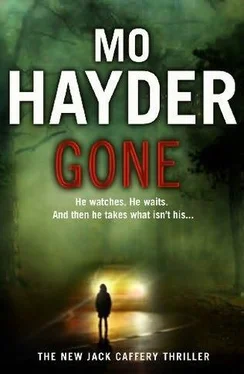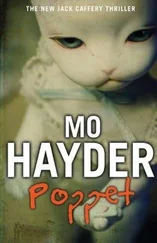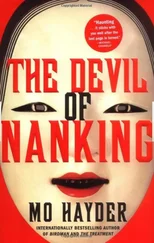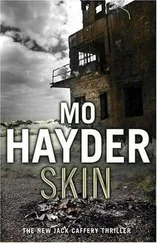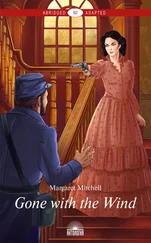‘It’s been almost three hours.’
Caffery held his eyes. The inspector was right – those three hours were outside what the statistics said, and he disliked that. But he’d been in the job long enough to expect the wide balls that came from time to time. The sudden swerves, the mould breakers. Yes, the three hours felt wrong, but there was probably a good reason. The guy might be trying to get a good distance. Find somewhere he was sure he wouldn’t be seen to dump her.
‘She’ll be back. You have my word.’
‘Really?’
‘Really.’
Caffery buttoned his coat as he left the room, pulled his car keys out of his pocket. He’d been due to knock off work in half an hour. There were a couple of things he’d been considering doing with his evening – a Police Social Club pub quiz at the Staple Hill bar, a meat raffle at the Coach and Horses near the offices, or a night at home on his own. Dismal choices. But not as dismal as what he had to do now. What he had to do now was go and speak to the Bradley family. Find out if, apart from the statistical blip, there was any other reason their younger daughter, Martha, wasn’t back yet.
It was six thirty when he arrived at the estate just outside the little Mendip village of Oakhill. It was a smartish executive development that must have been built about twenty years ago, with a wide no-through road and large laurel- and yew-bordered grounds sloping away down the side of the hill. The house wasn’t what he would have expected of a vicarage. He’d imagined a detached place with wisteria and a garden and ‘The Vicarage’ carved into stone gate newels. Instead it was semi-detached, with a tar-and-chip driveway, faux chimneys and uPVC windows. He parked outside and switched off the car engine. This was the part of the job that froze him – facing the victims. For a moment he considered not walking up the front path. Not knocking on the door. He considered turning round and getting out of there.
The FLO, the family liaison officer assigned to the Bradley family, opened the door. She was a tall woman in her thirties with shining black hair cut in a bob and perhaps was self-conscious of her height: she wore flat shoes under the wide-legged trousers and stood with a permanent stoop as if the ceiling was too low.
‘I’ve told them what unit you’re from.’ She stepped back to let him into the hallway. ‘I didn’t want to scare them but they had to know we’re taking it seriously. And I’ve told them you haven’t got any news. That you just want to ask some more questions.’
‘How’re they doing?’
‘How do you think?’
He shrugged. ‘Fair enough. Stupid question.’
She closed the door, then gave Caffery a long, appraising look. ‘I’ve heard of you. I know about you.’
It was warm inside so Caffery took off his coat. He didn’t ask the FLO what she knew about him, if it was good or bad. He was used to wariness from a certain type of woman. Somehow he’d dragged a reputation with him from his old position in London all the way out here to the West Country. It was part of what was keeping him lonely. Part of what was making him plan futile things with his evenings, like meat raffles and police pub quizzes.
‘Where are they?’
‘In the kitchen.’ She kicked a draft excluder against the bottom of the door. It was cold outside. Freezing. ‘But come through this way. I want to show you the photos first.’
The FLO took him into a side room where the curtains were half drawn. The furniture was good quality but shabby: a dark-wood upright piano pushed against one wall, a TV set in a marquetry cabinet, two battered sofas covered in what might pass for two old Navajo-weave blankets stitched together. Everything – the carpets, the walls, the furniture – was scruffy with years of kids and animals. On one of the sofas lay two dogs – a black and white collie and a spaniel. Both lifted their heads and watched Caffery. More scrutiny. More wanting to know what the hell he was going to do.
He stopped at a low table where twenty or so photos had been spread out. Torn out of an album – in the family’s haste they’d pulled the sticky corners off the pages. Martha was small and pale with fine white hair cut in a fringe. A pair of glasses – the type that’d get a kid teased. In investigative circles conventional wisdom said one of the most important skills in finding a missing child was choosing the right photo to release to the public. It had to be representative for identification’s sake, but it had to make the child appealing. He used his finger to move the pictures around. There were school shots, holiday shots, birthday-party shots. He stopped at one. Martha wore a melon-pink T-shirt, her hair tied in two plaits at either side of her face. Behind her the sky was blue and the distant hills were puffy with summer trees. From the view it must have been taken outside in the gardens of the estate. He turned it for the FLO to see. ‘Is this the one you chose?’
She nodded. ‘I emailed it to the press office. Is it the right one?’
‘It’s the one I’d have chosen.’
‘Do you want to meet them now?’
He sighed. Eyed the door she was pointing to. He hated what he had to do now. For him it was like standing at the door to a lion’s den. He just never knew with the victims how to get the right balance between the professional and the sympathetic. ‘Come on, then. Let’s get it over with.’
He walked into the kitchen, where the three members of the Bradley family immediately stopped what they were doing and lifted their faces to him expectantly. ‘No news.’ He held up his hands. ‘I haven’t got any news.’
They let out a collective breath, sank back into their miserable, stooped postures. He ticked them off in his head against the information the Frome police station had given him: that was the Reverend Jonathan Bradley over at the sink, mid-fifties, tall with dark blond hair growing thick and wavy from a high forehead and a wide, straight nose that would look as confident above a dog collar as it did above the grape-coloured sweatshirt and jeans he was wearing now. The word Iona was embroidered under a harp on the breast of the sweatshirt.
The Bradleys’ elder daughter, Philippa, sat at the table. She was straight out of the rebellious-teen box with a ring in her nose and dyed black hair. In the real world she should be slouched on the sofa at the back of the room, one leg over the arm, finger in her mouth, staring blankly at the TV set. But she wasn’t. She was sitting with her hands shoved between her knees, her shoulders hunched, a sick, terrified look on her face.
Then there was Rose, also sitting at the table. When she’d left the house this morning she must have looked like someone on their way to a church-council meeting with pearls and styled hair. But a face could change irrevocably in just a matter of hours, he knew from experience, and now Rose Bradley seemed halfway to the mad box in her shapeless cardigan and polyester dress. Her thinning blonde hair was smeared and plastered to her skull, there were inflamed bulges under her eyes and a hospital dressing on the side of her face. She was medicated too. He could see that from the unnatural droop to her mouth. Shame. He’d have liked her sharp.
‘We’re glad you’re here.’ Jonathan Bradley attempted a smile. He came forward and touched Caffery’s arm. ‘Sit down. I’ll pour you tea – there’s a pot ready.’
The kitchen was worn out and faded like the rest of the house, but it was warm. On the windowsill above the sink birthday cards had been lined up. A small shelf near the door was loaded with presents. A cake sat on a wire tray waiting to be iced. In the centre of the table there were three mobile phones – as if each member of the family had lined them up, expecting one to ring at any moment with news. Caffery noted the things, the places Martha seemed to be reaching into the room, but he didn’t let the family see him focusing on them. He chose a chair opposite Rose, sat down and gave her a brief smile. She twitched her mouth back at him. Just for a moment. Her cheeks were spattered with broken veins from crying and her eyes were slack, the red rims sappy and loose against the whites – the way the eyes of head-injury victims sometimes went. He’d have to make a note to check with the FLO where the tranquillizers were coming from. Check there was a GP somewhere in the wings and Rose wasn’t just raiding the emergency medicine cabinet.
Читать дальше
